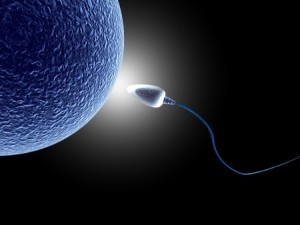
How ICSI Technology Enhances IVF Egg Fertilization
 ICSI – Intracytoplasmic Sperm Injection – is a specialized egg fertilization technique used during the IVF process. Look: ICSI bypasses a number of common reproductive conditions preventing sperm from fertilizing an egg. A single sperm cell is injected directly into an egg under the guidance of a microscope. ICSI has revolutionized the treatment of male-factor infertility.
ICSI – Intracytoplasmic Sperm Injection – is a specialized egg fertilization technique used during the IVF process. Look: ICSI bypasses a number of common reproductive conditions preventing sperm from fertilizing an egg. A single sperm cell is injected directly into an egg under the guidance of a microscope. ICSI has revolutionized the treatment of male-factor infertility.
Why is ICSI important?
- ICSI is used to maximize the rate of egg fertilization
- ICSI lessens the chances of sperm not being able to penetrate the wall of the egg
ICSI is recommended for most couples undergoing IVF – especially these candidates:
- Unexplained infertility – known as idiopathic infertility – when the cause cannot be pinpointed
- Male-factor infertility – a man’s sperm is not able to fertilize a woman’s egg
- Combined female- and male-factor infertility
Today, ICSI is routinely recommended to improve fertilization in all IVF cases – regardless of diagnosis.
Sperm Retrieval for ICSI
When a man has a low sperm count and/or motility, a semen sample is collected through masturbation. The semen sample is processed in a special solution to obtain optimum ICSI results.
When a man is suffering from azoospermia – no sperm in ejaculate – sperm is microsurgically retrieved from the testicle or epididymis. This is commonly known as testicular sperm retrieval. Microsurgery to remove sperm from the testicles or epididymis can be performed under local or general anesthesia and requires short recovery periods.
Obstructive Azoospermia (no sperm in semen) can be corrected by the surgical removal of sperm directly from the testis or epididymis of the testicle.
- Microsurgical Epididymal Sperm Aspiration (MESA)
- Percutaneous Epididymal Sperm Aspiration (PESE)
- Testicular Sperm Extraction (TESA)
Non-Obstructive Azoospermia (sperm count with impaired sperm) may be caused by hormonal problems, testicular failure, varicocele, or varicose veins in the testicles. Non-Obstructive Azoospermia can be corrected through TESE – testicular sperm extraction. TESE is a surgical technique using fine needle aspiration performed with local anesthesia.
ICSI Process Explained
The ICSI procedure takes place in a special laboratory environment having quality controlled temperature and air quality – all conditions are sterile. ICSI is performed during the fertilization period within an ordinary fresh IVF cycle.
- Ovarian stimulation
- Egg retrieval procedure
- Maturation of eggs in vitro
- Selection of mature eggs
- After the semen sample has been prepared, a single sperm is picked up into a tiny glass pipette under the guidance of a microscope
- The sperm is injected directly into the cytoplasm of a mature egg (oocyte) by passing the pipette through the surface of the egg
- The sperm cell is released into the egg and the pipette is withdrawn
- Simultaneously, a second polar body is released from the egg
- Monitoring of eggs until normal embryonic development is confirmed
- Transfer of quality embryo to the uterus
- Cryopreservation of excess quality embryos for future Frozen Embryo Transfer (FET) procedures
Success Rates of ICSI
The rates of success after ICSI are comparable or better than those IVF procedures performed without ICSI.
- Successful embryonic development
- Successful implantation
- Successful pregnancy
- Healthy live birth
Embryonic and fetal development after ICSI occurs in exactly the same way as it does after IVF without ICSI or natural conception.
After sperm are injected into the egg, the fertilized egg is returned to its incubator. The following day, the injected eggs are analyzed under a microscope and a determination is made as to whether or not fertilization occurred successfully.
Fertilization may not occur normally when eggs are of a poor quality. Normal fertilization will occur in healthy, mature, high quality eggs in 70 percent of ICSI cases.
Celebrated IVF and ICSI Fertility Doctor
It is important to work with a fertility doctor having the research and clinical experience required to design a customized IVF treatment plan meeting your personal medical needs. If you would like to know more about ICSI and its effectiveness in successful egg fertilization in conjunction with IVF, schedule your initial consultation with Dr. John Zhang at New Hope Fertility Center by calling 917.525.5496.